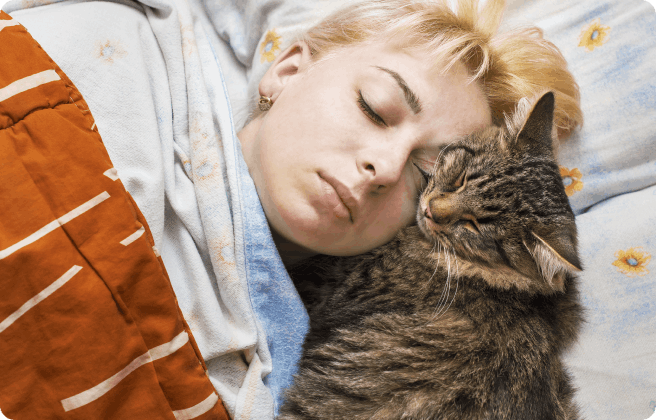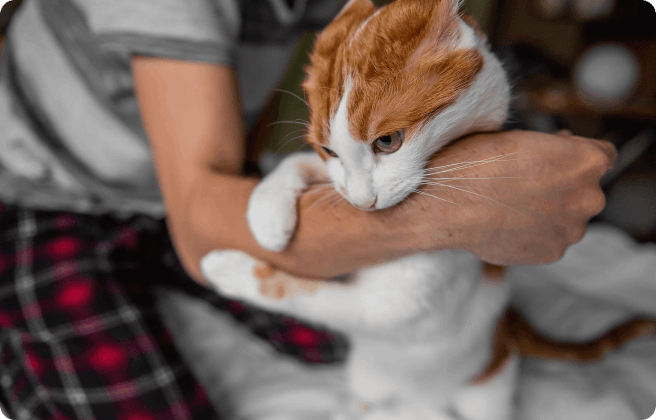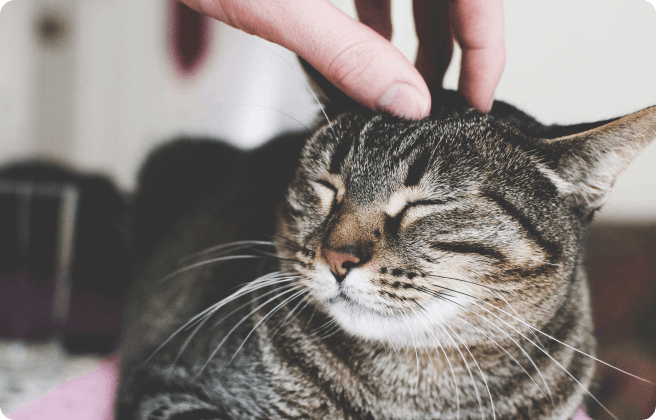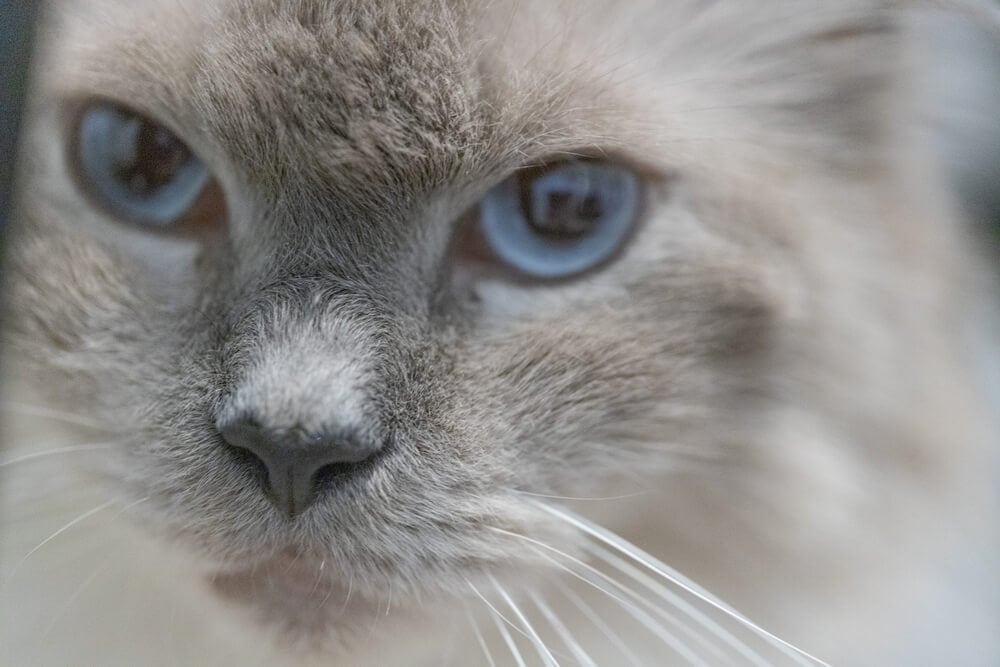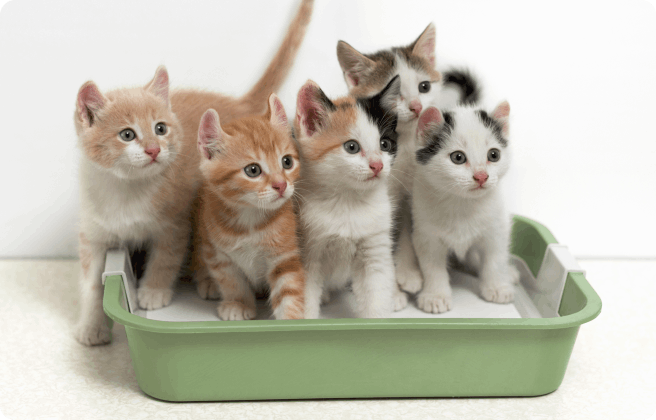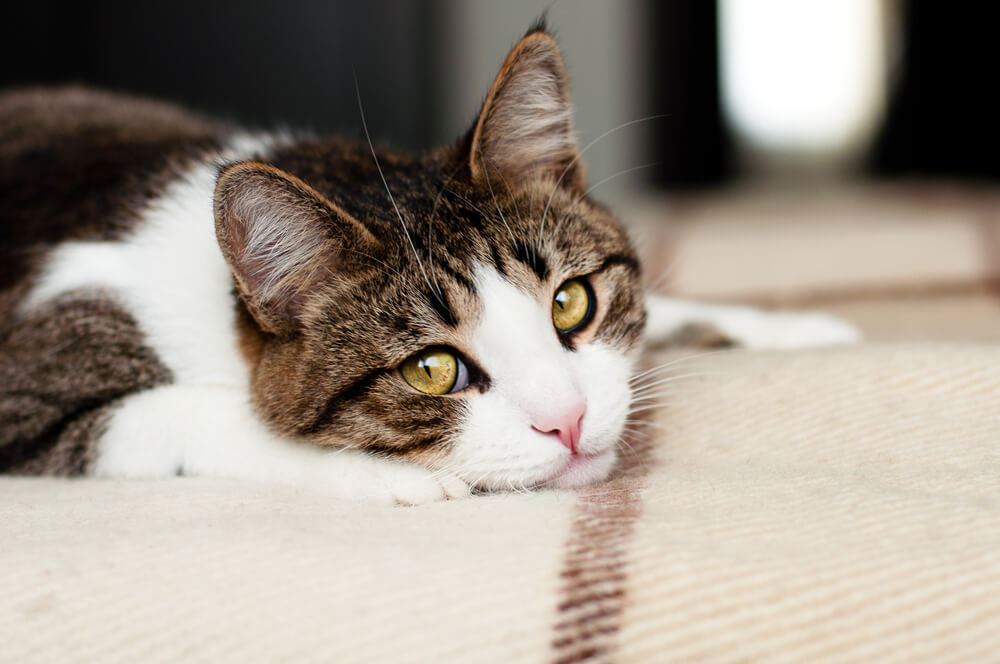
With their mysterious ways, cats always keep us guessing about their thoughts and feelings. But when there’s been a recent change in the household, like the absence of a loved one, and you notice your cat acting a bit out of character, it’s natural to feel concerned.
Could it be that they’re grieving? And if so, what can you do to support them through this tough time? This article will provide some helpful tips and guidance for helping your feline friend cope with loss.
Do cats mourn?
While it’s unlikely for pets to fully comprehend the loss of a human companion or fellow four-legged sibling forever, there is evidence to show that cats grieve the loss.
Certain skeptics put their cat’s change in behavior due to an upset in their routine. For example, if a loved one who regularly fed them at a certain time is now absent, or a cat sibling wasn’t around for playtime, the cat would be thrown off schedule and therefore act out.
Despite the core reason behind your cat’s feelings, the loss of a family or furry member is likely to affect your cat’s behavior in some way.
Common signs that your cat may be grieving
Changes in behavior
As cats can’t verbally express their feelings, grieving cats will often display emotion through behavior. This can manifest as increased vocalization, withdrawal, or, alternatively, seeking more attention. Keep an eye on any variations from their regular routines as it could be a sign of grief.
Appetite changes
Loss can impact a cat’s appetite. Some may eat less, while others may overeat. Monitor their meal and snack times as sudden shifts in eating habits can be indicative of emotional distress.
Lethargy
Much like people, grieving cats may appear more lethargic than usual. A noticeable decrease in energy levels and a reluctance to engage in play could be signs of mourning.
Changes in sleeping patterns
Cats are known for their love of napping, but grieving cats may either sleep excessively or struggle with insomnia. Disruptions in their typical sleep patterns can point to emotional distress.
Aggression or withdrawal
Cats grieving the loss of a companion may exhibit changes in their social behaviors. Some become more aggressive, while others withdraw from interaction. These shifts are attempts to cope with their emotions.
How can I help my cat with grief?
If your cat is experiencing common signs of grief then you will want to help them as much as possible. It can be a difficult period as it’s likely you are too, experiencing a loss so perhaps seeking help from a loved one might ease the strain.
Keep routine as normal as possible
Cats thrive on routine, and maintaining a consistent schedule can provide a sense of stability during tumultuous times. Try your best to stick to regular feeding times, play sessions, and bedtime habits.
Spend quality time with your cat
Try to engage your cat to play with you or allow them to snuggle with you if that’s something they desire. You can also keep your cat’s favorite treats handy; just take care not to overfeed your cat. Spending time with your pet can also be a comfort for you if you’re also struggling with grief.
Make sure your cat has entertainment
Engage your cat in activities that stimulate their mind and body. Puzzle toys, interactive play sessions, and new stimuli can help distract them from grief. It’s especially important if you are leaving the house for a period of time and your cat is alone.
Create a comfortable environment
Designate a quiet and comfortable space for your cat where they can retreat if needed. Ensure this area is equipped with familiar belongings like blankets, toys, and their favorite bed.
Seek expert advice
Keep a close eye on your cat’s overall health during the grieving process. If you notice persistent changes in behavior, appetite, or physical well-being, consult with a veterinarian promptly.
Grieving is an incredibly difficult time and everyone processes it in their own way — the same applies to your cat. Therefore, if your cat suddenly starts soiling indoors, destroying furniture, or begins excessive vocalization, don’t punish them. This could instill fear in them, and worsen their anxiety which will not help such behavior. Instead, reward positive behavior and have a little more patience with them.
We wish all the best for you and your cat during this difficult time and hope you get through it together.
We uphold the highest editorial standards when creating the authoritative content pet parents rely on and trust.
Every piece of clinical content on the Cat Food Advisor is reviewed by our certified Veterinary Advisory Board, which consists of licensed veterinarians and medically certified specialists.
Our reviews are completely independent; we are not paid by any pet food company to promote their products favorably. We do not accept money, gifts, samples or other incentives in exchange for special consideration. For more information see our Disclaimer & Disclosure page.




